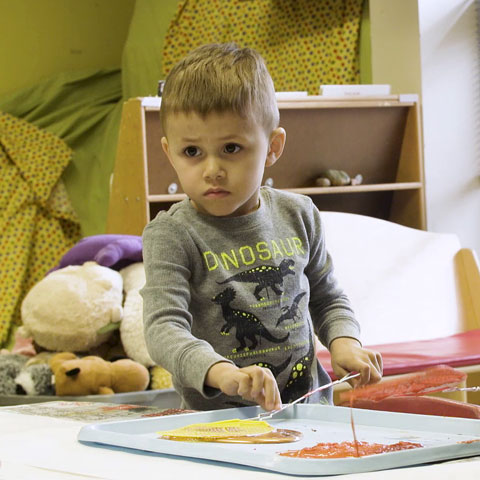About this video
When teachers set out activities that are of high interest to children, conflicts can arise. Being prepared with strategies to help children cope with the challenge of waiting for a turn can minimize conflicts.
In this video, we see eager children rushing from large group time to a small group painting activity with fly swatters. We hear the teacher proactively make a waiting list to help the children understand when they will get a turn to paint with the fly swatters. This strategy promotes positive relationships among the children by helping them take turns with this activity.
Video
Transcript
Teacher: Stand up to do it.
No, no. He’s already called that one. We have to take turns. There’s two fly swatters. So we will have to take turns.
So I will start a list. So (child’s name) and (child’s name), I will put you on the list.
Okay guys, you’re gonna slap at the paper.
Benchmarks and How They Were Met
Teaching Practices That Help Children Meet Benchmarks
| Benchmarks | How They Were Met |
|---|---|
| Social/Emotional Development 30.A.ECd: Begin to understand and follow rules. 30.A.ECe: Use materials with purpose, safety, and respect. | The teacher helps children follow rules by stating her expectations. She tells the children that only two children can do the activity at once, so they must take turns. The children are learning to follow rules and use the materials safely and respectfully by listening to the teacher’s directions. |
| Social/Emotional Development 31.B.ECb: Engage in cooperative group play. 31.B.ECc: Use socially appropriate behavior with peers and adults, such as helping, sharing, and taking turns. | The teacher tells the children they will be taking turns during this activity. She also creates a waiting list of the children’s names to help the children understand who gets to participate next. |


